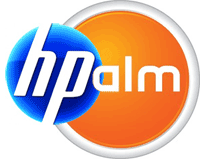WebOS: The Trying-Really-Hard-to-Be-an-Optimist’s View
By Harry McCracken | Friday, August 19, 2011 at 12:34 pm
 I’m still reeling from the news that HP is getting out of the WebOS hardware business. So is the whole blogosphere. And a lot of it has written off WebOS, period. A lot of stories are talking about the OS in the past tense.
I’m still reeling from the news that HP is getting out of the WebOS hardware business. So is the whole blogosphere. And a lot of it has written off WebOS, period. A lot of stories are talking about the OS in the past tense.
But HP hasn’t said that it’s scrapping WebOS. Its press release about its planned “transformation”–a refocusing on enterprise stuff and a move away from most consumer products, including even PCs–said only this about WebOS:
HP will discontinue operations for webOS devices, specifically the TouchPad and webOS phones. The devices have not met internal milestones and financial targets. HP will continue to explore options to optimize the value of webOS software going forward.
That’s wishy-washy for sure. But it’s not saying that it’s giving up on WebOS–just that it’s giving up on its current WebOS hardware. (As far as I know, the company hasn’t said what it plans to do with the WebOS printers it’s repeatedly said that it’s working on. They might yet appear–presumably, development of the first models is far along at this point, and “Would I buy a WebOS printer?” is an utterly different question than “Would I buy a WebOS tablet?)
HP’s Richard Kerris, meanwhile, has tweeted stoically about what’s going on, hinting that the future involves licensing WebOS to one or more third parties:
#HPwebOS is an awesome software platform and now we can explore the best hardware partner for it. #onward.
— richardkerris (@richardkerris) August 18, 2011
Now, it’s true that you’d have to be a Pollyanna, a hardcore WebOS fan, or an HP employee–or all three–to conclude right now that WebOS’s future is bright. Even if HP isn’t nuking the OS, it’s throwing it into limbo. The software is now famous mostly for powering unsuccessful products. It’s designed for one hardware platform–Qualcomm’s–which is an issue if a company that prefers another chipmaker’s products wants to use it.
Most of all, there’s the little fact that HP–one of the world’s largest and most experienced designers of gadgets–tried to build a successful WebOS device, failed, gave up, and is disinterested in trying again. If WebOS is so darned attractive, why does HP think that it’s other companies who should use it?
Despite everything, I’d love to see WebOS live on to fight another day. Emotionally speaking, it matters: it’s the last remnant of Palm Computing, one of the greatest tech companies there ever was. And who–Apple, Google, and Microsoft aside–wouldn’t prefer a happy ending to this story over a tragic one?
But there are rational reasons to root for WebOS, too. It’s still a well-designed operating system with loads of potential. We still need more than two viable platforms for tablets, and with Google planning to buy Motorola, we need licensable platforms that aren’t owned by tablet companies. And hey, WebOS comes bundled with a large and valuable collection of mobile patents. (I had fun looking at some of them in this slideshow.)
So it’s not completely crazy to refuse to declare WebOS dead just yet. But the clock began ticking the moment HP made its announcement yesterday. If there’s no good news really soon, it’ll be really bad news. But for now, I consider WebOS to be a deeply troubled operating system–not a defunct one.
3 Comments
Read more:













August 19th, 2011 at 1:12 pm
Should Android become "inconvenient" for Amazon for some reason, I could see some sort of arrangement by which Amazon underwrites (or does) work on WebOS and uses it in devices and it is available to others.
That's the best scenario I can come up with at the moment.
August 19th, 2011 at 2:41 pm
"We still need more than two viable platforms for tablets,"
1) Why?
2) Is Android really a viable tablet platform at this point?
August 19th, 2011 at 2:55 pm
1) Because markets with only two strong players aren’t that much better than monopolies (for the same reason, I hope we never find ourselves with AT&T and Verizon as the only major wireless carries)
2) I think it will be, but it isn’t yet–and I’m not even assuming it’ll be one of the top two.
–Harry